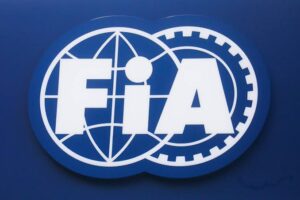Just in:FIA CONFIRM latest exit as staff continue to leave F1 governing……read more

FIA CONFIRM latest exit as staff continue to leave F1 governing……read more
The recent wave of departures from the FIA has sparked significant concerns about the future stability and leadership of the organization, which governs global motorsport, including Formula 1. In the latest development, FIA’s Road Sport Director, Wheatley, has confirmed his decision to leave, joining a growing list of high-level staff members who have exited in recent months. This announcement has raised questions about the FIA’s ability to maintain effective leadership at a time when the motorsport world, particularly Formula 1, is experiencing unprecedented growth and popularity.
Wheatley’s departure comes at a time when the FIA is facing notable internal challenges. Despite his departure, Wheatley praised the efforts of event organizers and volunteers who have been crucial in supporting global motorsport events. He specifically highlighted the positive developments within rallying and off-road racing, expressing confidence that these efforts would serve as a solid foundation for the future of these categories. While his remarks were optimistic, they also underscore the mounting pressure on the FIA’s leadership to steer the organization through turbulent waters.
One of the key issues that have emerged alongside Wheatley’s exit is the uncertainty surrounding the succession plan for his role. As the governing body for Formula 1 and other motorsport events, the FIA’s leadership plays a critical role in ensuring the smooth operation and regulatory oversight of the sport. With Wheatley’s departure, questions loom about who will step into the position of Road Sport Director in the upcoming season. This uncertainty is compounded by a series of other high-profile exits from the organization in recent months, further deepening concerns about the FIA’s internal stability.
The timing of Wheatley’s departure is especially significant, given the context of Formula 1’s soaring popularity. In recent years, the sport has seen a massive increase in viewership and commercial revenue, with major manufacturers such as Ferrari, McLaren, and Mercedes competing fiercely for both the drivers’ and constructors’ championships. As the stakes continue to rise, the FIA’s ability to maintain effective oversight and governance becomes more critical than ever. The organization is expected to navigate complex commercial interests, technical innovations, and a rapidly evolving competitive landscape in the years to come.
The FIA’s leadership issues come at a crucial juncture for Formula 1, which is nearing the end of its 2024 season. With the final race scheduled to take place in Abu Dhabi, all eyes are on the future direction of the sport and its governing body. The uncertainty surrounding the FIA’s leadership could pose challenges in ensuring that F1 remains on track to meet the demands of its growing global fanbase and stakeholders. Additionally, with major drivers like Lewis Hamilton preparing for potential transitions in the coming seasons, the FIA’s role in overseeing these changes becomes even more vital.
Despite the internal challenges faced by the FIA, many industry experts remain hopeful that the organization will be able to stabilize and emerge stronger in the long run. However, there is a growing recognition that the FIA will need to address its staffing concerns and put in place a leadership team capable of managing the increasing complexities of global motorsport. The ability of the governing body to adapt to the changing landscape of F1 and other racing disciplines will be critical in ensuring the integrity and success of the sport moving forward.
As the FIA continues to grapple with leadership transitions and other challenges, its role as the governing body for Formula 1 and other motorsports remains crucial. The organization will need to ensure it can provide strong, consistent leadership to navigate the complexities of the sport’s future growth, commercial interests, and innovation. How the FIA handles its current instability will likely have far-reaching consequences for the long-term success of global motorsport, especially at a time when the industry is poised for even greater global recognition and financial expansion.





